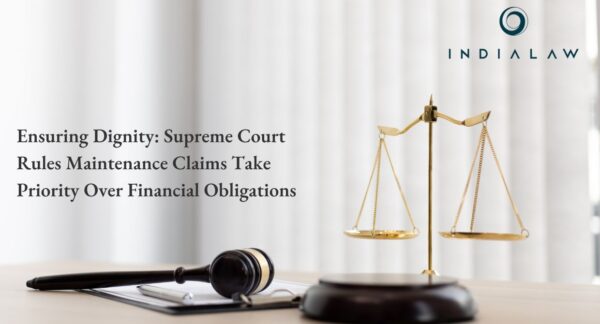Pooja Ravinder Devidasani v. State of Maharashtra & Ors.

By Binju Inamdar
Directors cannot be held liable for dishonour of cheques issued by the company after his/her resignation
FACTS OF THE CASE:
The Appellant, Pooja Ravinder Devidasani was appointed as a Director of M/s Elite International Pvt. Ltd (the “Company”) on 1 July 2004 and had executed a Letter of Guarantee on 19 January 2005 in favour of the Respondent. As per the copy of Annual Return of 2006, filed by the Company, the Appellant had ceased to be the Director since 17 December 2005.
Respondent, a finance company, filed seven complaints under the Negotiable Instruments Act, 1881 (the “Act”) against the Appellant and others.
In all the complaints the allegation was that the Respondent had extended trade finance facility to Company as per the Letter of Guarantee. The Company had issued 119 Cheques aggregating to Rs. 8,64,58,810/-, in discharge of its liability. All those cheques were dishonoured with the banker’s remarks “insufficient funds”. According to the Complainant, at the material time, the Appellant was in charge and at the helm of affairs of the Company and therefore was vicariously liable for the default of the Company as she was responsible for the conduct of its business.
The Magistrate court took cognizance of the complaints and issued process against the Appellant for the offence punishable under Section 138 of the Act.
The aggrieved Appellant filed Criminal Writ Petitions before the High Court under Section 482, Code of Criminal Procedure seeking quashing of the criminal proceedings pending before the Metropolitan Magistrate. The High Court, by the impugned order, dismissed the writ petitions filed by the Appellant.
Challenging the said order of dismissal, the Appellant filed special leave petition before the Supreme Court.
QUESTIONS BEFORE THE SUPREME COURT:
- Whether the Appellant was liable for prosecution under Section 138 read with Section 141 of the Act for the alleged offence of dishonor of cheques committed by the Company?
- Whether the High Court was right in dismissing the writ petitions filed by the Appellant seeking quashing of the criminal proceedings initiated against her by the Respondent?
FINDINGS OF THE SUPREME COURT:
The Appellant was not the managing director but only a non-executive Director of the Company. Non-executive Director is no doubt a custodian of the governance of the Company, but is not involved in the day-to-day affairs of the running of its business and only monitors the executive activity.
To fasten vicarious liability under Section 141 of the Act on a person, at the material time, that person shall have been at the helm of affairs of the Company, one who actively looks after the day-to-day activities of the Company and particularly responsible for the conduct of its business. Simply because a person is a Director of a Company, does not make him liable under the Act. Every person connected with the Company will not fall into the ambit of the provision.
The law laid down for making the Director of a Company liable for the offences committed by the Company under Section 141 of the Act, there must be specific averments against the Director showing as to how and in what manner the Director was responsible for the conduct of the business of the Company.
JUDGEMENT:
In the entire complaint, the role of the Appellant for the conduct of business and day to day affairs of the Company was not explained.
The cheques were issued during April 2008 to September 2008. The Appellant had already resigned from the Board of Directors much before the cheques were issued. Hence, the Court held that continuation of criminal proceedings against the Appellant under Section 138 read with Section 141 of the Act is a pure abuse of process of law and it had to be interdicted at the threshold.
So far as the Letter of Guarantee executed by the Appellant in favour of the Complainant on 19 January 2005 was concerned, the Court held that appropriate civil proceedings can be initiated against the Appellant. The Court refused to accept the contention of the Respondent that the cheques in question were issued by virtue of the Letter of Guarantee issued by the Appellant and hence the Appellant was liable under Section 138 read with Section 141 of the Act.
[1] Criminal Appeal Nos. 2604-2610 of 2014 (Arising out of Special Leave Petition (Crl) Nos. 9133-9139 of 2010)




